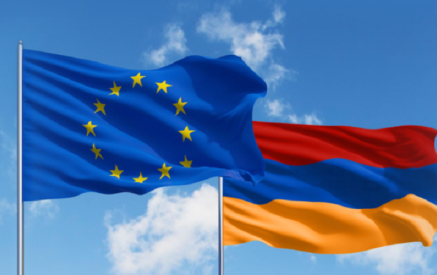In 90s, the population, which lives in the post-Soviet area, was called “transitional society”, meaning that in a few years these countries will shake off the remnants of totalitarianism and will enter a family of civilized and developed nations. Now, the “transitional period” is significantly less talked about, probably because the 20-year for this “transition” was quite enough, and since it is not carried out in many post-Soviet countries, it is very likely that it will not happen.
In our countries, including, Armenia, opinions are heard that we do not need this transition, that we will go by our own way. It is very natural when something does not work out, then you’re consoling with an idea that the “grapes were not ripe”. However, I do not accept this console, I believe that we must strive for the well-being and social relationships, to the level of legitimacy, transparency, and control over the activities of authorities that exists in the Western Europe. Moreover, I think that it’s not some unreachable ideal, but a very realistic way.
By accepting this “presumption”, let’s try to understand what prevented and is preventing us to make this transition. The hope about the latter was based on the simple logic that my generation with its own way of thinking will be already different from its predecessor, the Soviet generation, well, and those who come after us will be fully autonomous, proactive, and open to changes and the public partnership. So it would probably be if the newly independent states were build in specific moral principles.
Usually by saying “morality” in the Armenian environment, they mean the unique perceived personal virtue, for instances, it is moral that the girl does not lose her virginity before marriage. In fact, still Hovhannes Tumanyan had paid attention on this peculiarity. “In our country, unfortunately, by saying morality and immorality, we understand in the thought of sexual without thinking that it is just there that they had the least right to interfere, and often they do not have the right at all.”
In political and sociological sense, morality is completely a different thing. This issue in the European culture was raised still by the thinkers of the 17-18th centuries. Lock, Montesquieu, and Gobs were thinking about what the absolute power and dictatorship should be limited to. And they came to the conclusion that the limiting factor is the morality of dependents, which is based on people’s natural, God-given life, liberty, ownership, and slightly later, on the right to fair trial.
Morality, in that sense, is not the stability of “not betraying”, but the notion about inalienable rights, which is associated with being conscious of overall interest. This is the main driving force of “transition”, the common interest, boon, which is shared by all, and not the zero-sum game, in which one wins and the other loses. It is not a distribution of boon, which is typical to totalitarian system and thinking, but the idea of solidarity, when all are interested and are winners.
The system of social ties based on the notion of solidarity and mutual interests forms a society, in which there is no typical for us relations of ruling and being dependent. This type of morality assumes a correlation of own behavior with overall interest, consequently, high commitment for every of your step.
The transition failed because it turned out that the Soviet totalitarian system, as well as the “gene” of its preceding serfdom system in post-Soviet people, is a deeper seated than it was supposed to. Hence, the paternalistic illusions incur that the good and strong “king” will come and everything will get to its place, as well as the public egoism despite the collectivism advocated in the Soviet period, the communication disruption between the individual and the society, the zero level of responsibility, “let the government think of me,” the “sharikov” vision about justice, seize from the rich and divide among each other, extreme conformism along with complaints and lamentation, “let them not touch me, I will be good.”
Evolution, however, is taking place, but more slowly than it seemed in the 90-ies. The sociologists claim that the type of the above-described “Soviet man” in post-Soviet countries amount to 30-40 percent. But, so far, it is the base layer of the society.
ARAM ABRAHAMYAN




















































